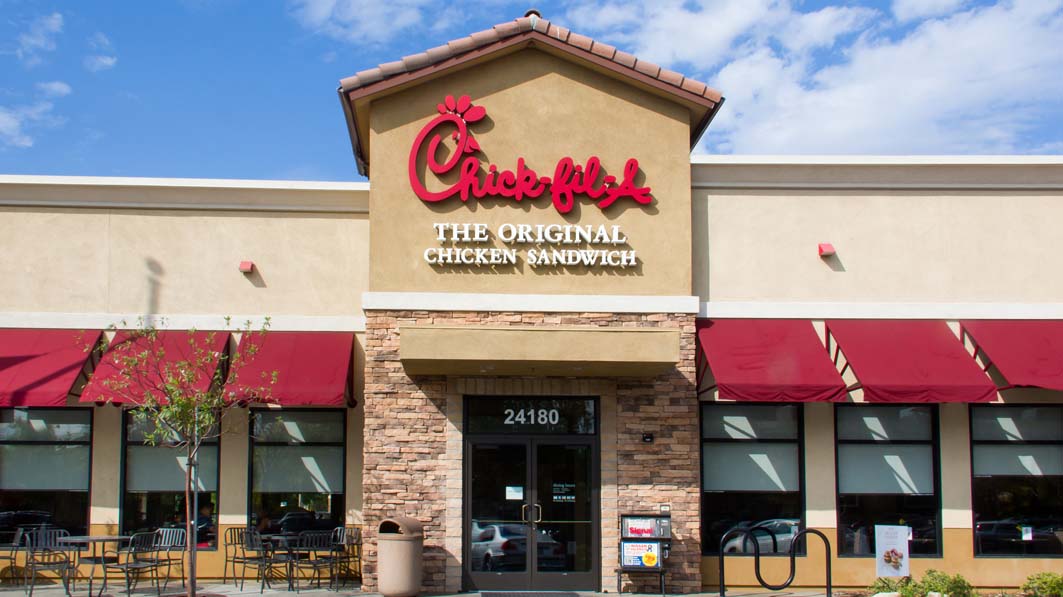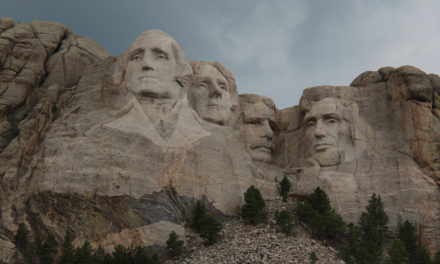“The Struggle for Gay Rights is Over.” That was a headline in The Atlantic, earlier this year as the magazine examined the 50th anniversary of the Stonewall riots. The author, James Kirchick, is a gay-identified man who received the Journalist of the Year Award from the National Lesbian and Gay Journalists Association. So he’s clearly not some “right-wing, homophobic, heterosexist, religious bigot.”
Evidently, LGBT agitators didn’t read the article.
Just last week, a group of animal rights and LGBT activists in Windsor, Ontario, protested a meeting where the city council was discussing the site plan for a new Chick-fil-A in the city. The LGBT demonstrators carried defamatory signs saying “Chick-fil-A hates LGBTQ+ people” and “Chick-fil-A is a homophobe.”
The protest group, “Keep Chick-fil-A out of Windsor, ON,” has a private Facebook page where it first says the company is “notoriously bigoted and homophobic” and “unapologetically politically and religiously right-wing.” Group members are then told to be nice to each other: “Bullying of any kind isn’t allowed and degrading comments about things like sexual orientation, gender or identity, race, religion and culture will not be tolerated.”
The demonstrators don’t see the irony of bullying and degrading Chick-fil-A for its religious corporate purpose in order to promote tolerance.
In the same way, a protestor who helped organize the event showed a remarkable lack of self-awareness, saying, “Canada supports diversity.” Except, that is, diversity of beliefs about religion, sexuality and marriage. The protestors also didn’t get the news that, only two weeks earlier, the Chick-fil-A Foundation announced a significant shift in its philanthropic policies, no longer donating to Christian organizations that believe real marriage unites one man and one woman in a lifelong, covenantal relationship. What more do activists want?
Aside from the paradox of bullying and excluding others to enforce tolerance and diversity, the demonstrators don’t seem to know how successful and powerful LGBT agitators have become. James Kirchick’s article makes a strong case that the LGBT movement “has arguably advanced faster than any other in American history.”
Across America – and even more so in Canada – homosexuality is applauded and celebrated in education, politics, law, news media, entertainment and business. Entire Christian denominations have turned their back on biblical teaching about marriage and sexuality to endorse homosexual relationships. This approval is a little less true of those with gender identity issues, but transgender-identified individuals are not far behind, and the issue is following the same trajectory.
But LGBT activists and their allies still push for more. How much will be enough? Right now, activists want a national law that prohibits discrimination on the basis of “sexual orientation and gender identity” such as the “Equality Act.”
Kirchick asks if such a law is even necessary. He explains that LGBT individuals, today, face nothing like the discrimination imposed on African Americans during the 1950s and ’60s. He writes: “And unlike the disparity between African Americans and whites a half century ago (or today, for that matter), gays economically outperform heterosexuals. A 2017 study conducted by two Vanderbilt University economists reports that gay men earn 10 percent more on average than their straight peers. (Researchers have long identified a similar trend among lesbians.)”
He also notes that advocacy groups like the Human Rights Campaign (HRC) don’t have any idea how many LGBT-identified people even experience discrimination. Kirchick says, “When I asked the Human Rights Campaign, the country’s leading gay-rights group, for statistics on the number of LGBTQ people annually denied employment, housing, or service at a hotel or restaurant due to their sexuality or gender identity, the group was unable to provide me with any.”
That’s right. Gay- and lesbian-identified men and women have higher average incomes, and the biggest LGBT group in the country can’t point to any real statistics about actual discrimination in housing, employment or public accommodations. What more do they want?
Businesses have fallen quickly in line with LGBT demands. HRC publishes an annual “Corporate Equality Index” (CEI), which ranks businesses according to their “commitment to equal treatment of employees, consumers and investors, irrespective of their sexual orientation and gender identity or expression.”
HRC’s first report came out in 2002. Then, only 13 companies received a perfect score out of 100 points. Among other demands, the group wanted businesses to:
- Have a written non-discrimination policy including “sexual orientation.”
- Offer health insurance to employees’ same-sex domestic partners.
- Have a company-recognized LGBTQ group.
- Donate to LGBTQ or AIDS-related organizations or events.
By 2005, 100 businesses had perfect ratings. So naturally, HRC upped the ante, changing their scoring system and increasing their demands in 2004 and 2009. New criteria included transgender wellness benefits, such as counseling, hormone therapy, surgical procedures or disability leave for surgery. The group also allowed itself to deduct points from employers who had a “large-scale or public anti-LGBTQ blemish on their recent records.”
Even with stronger demands, 190 major businesses earned a 100 percent score in the 2012 report, out of 337 companies rated by HRC. These were large, familiar companies such as Avon, Bank of America, Chrysler, Coca-Cola, Kellogg, Johnson & Johnson, Lockheed Martin, Time Warner and Walt Disney.
So, again, the criteria became more stringent. New demands from HRC in 2018 included having “sexual orientation and gender identity non-discrimination protections explicitly included in all of its operations, both within the US and global operations” and requiring “US contractors to abide by companies’ existing inclusive non-discrimination policy.” Yet again, more companies met those demands. HRC boasts, in its most recent index, “572 businesses earned a 100 percent rating and the designation of being a ‘Best Place to Work for LGBTQ Equality.’”
From 13 businesses in 2002 to 572 in 2019 with perfect scores. These companies don’t just tolerate, but actively promote and celebrate homosexuality and transgenderism.
Kirchick gives his opinion about the drive behind the activism we still see today, despite his believe that “the struggle” is over. He writes: “Guided by a moral absolutism resembling the religious zeal of those they oppose, some gay activists and their progressive allies have taken a zero-sum approach to the issue of antidiscrimination, seeking to punish and stigmatize people who hold the exact same view of marriage that Barack Obama expressed up until May 2012.”
Bent on keeping Chick-fil-A sandwiches, milkshakes and waffle fries out of their city, the protestors in Windsor do seem to be operating with the sense of “religious zeal” and “moral absolutism” that Kirchick describes. The demonstration organizer told reporters: “If and when they do open, we’re going to be there protesting. Their grand opening, job fairs, whatever they have, we’re going to be there.”
That does sound like a “zero-sum approach” in which those who disagree with LGBT activists will be punished and stigmatized. Will that satisfy activists? Is that what they want?






